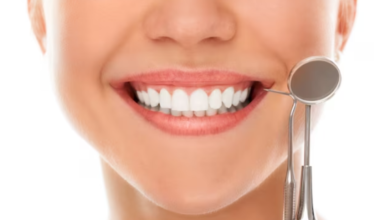HEALTH A TO Z
What Is The Quickest Way to Clear Acne?

Acne, a common skin condition characterized by pimples, blackheads, and whiteheads, can be a frustrating and embarrassing experience.
While it typically affects adolescents and young adults, It can persist into adulthood. Fortunately, there are effective strategies to clear acne and achieve a blemish-free complexion. buy accutane online from dose pharmacy to get the best offers and discount
Understanding the Causes of Acne
It is caused by a combination of factors, including:
- Increased Oil Production: Excess sebum production can clog pores and create an environment for bacteria to thrive.
- Bacterial Overgrowth: The bacterium Propionibacterium acnes (P. acnes) feeds on sebum and produces substances that cause inflammation and acne lesions.
- Clogged Pores: Dead skin cells and sebum can clog pores, leading to blackheads and whiteheads.
- Hormonal Changes: Hormonal fluctuations, particularly during puberty and menstruation, can stimulate sebum production and contribute to it. you should also try isotretinoin 40 mg
- Genetics: Genetics play a role in an individual’s susceptibility to it.
Effective Strategies for Clearing Acne
- Over-the-Counter Acne Treatments: Over-the-counter (OTC) treatments, such as benzoyl peroxide and salicylic acid, can help reduce inflammation, kill bacteria, and unclog pores.
- Topical Retinoids: Topical retinoids, such as tretinoin (Retin-A) and adapalene (Differin), promote skin cell turnover, unclog pores, and reduce inflammation.
- Oral Antibiotics: For moderate to severe acne, oral antibiotics, such as tetracycline and doxycycline, can help reduce bacterial overgrowth.
- Hormonal Treatments: For women with it related to hormonal imbalances, hormonal treatments such as birth control pills or spironolactone can be effective.
- Keeping Skin Clean: Gentle and regular cleansing with a non-comedogenic cleanser can remove dirt,oil, and dead skin cells without irritating the skin.
- Avoiding Harsh Products: Avoid harsh soaps, scrubs, and astringents, which can irritate the skin and worsen acne.
- Moisturizing: Contrary to popular belief, moisturizing is essential for acne-prone skin. Choose a non-comedogenic moisturizer to keep skin hydrated without clogging pores.
- Avoiding Picking and Touching: Picking or touching acne lesions can spread bacteria and worsen inflammation.
- Seeking Professional Help: For severe or persistent acne, consulting a dermatologist is recommended for personalized treatment options.
Quick Fixes for Occasional Breakouts
While there is no quick fix for chronic acne, there are strategies to manage occasional breakouts:
- Ice Compresses: Applying ice compresses to inflamed pimples can reduce swelling and redness.
- Spot Treatments: Use OTC spot treatments containing benzoyl peroxide or salicylic acid to target specific pimples.
- Extra Cleansing: Gently cleanse the affected area more frequently to remove excess oil and bacteria.
- Avoiding Makeup: Avoid applying makeup to the affected area, as it can clog pores and worsen inflammation.
- Diet: While there is no definitive acne-causing diet, reducing refined carbohydrates, processed foods, and sugary drinks may improve it symptoms. Consuming plenty of fruits, vegetables, and whole grains can provide essential nutrients for skin health.
- Stress Management: Stress can exacerbate it symptoms. Practicing stress-reducing techniques such as yoga, meditation, or deep breathing can help manage stress levels and potentially improve pimple issues.
- Adequate Sleep: Sleep deprivation can contribute to hormonal imbalances and worsen it. Aim for 7-8 hours of quality sleep each night.
- Sun Protection: While sunlight can temporarily dry out acne lesions, excessive sun exposure can worsen inflammation and increase the risk of hyperpigmentation from acne scars. Use a broad-spectrum sunscreen with an SPF of 30 or higher daily.
- Hydration: Keeping your body hydrated helps flush out toxins and promotes overall skin health. Drink plenty of water throughout the day.
Additional Tips for Clearing Acne
- Change Pillowcases Regularly: Change pillowcases every few days to prevent the buildup of bacteria that can contribute to it breakouts.
- Clean Makeup Brushes: Regularly clean makeup brushes and applicators to prevent the spread of bacteria and debris that can clog pores.
- Avoid Excessive Sweating: Excessive sweating can irritate the skin and worsen it. Shower after sweating and wear breathable clothing.
- Manage Medications: Certain medications, such as corticosteroids and lithium, can worsen it. Consult with your doctor if you suspect a medication is contributing to your acne.
- Patience and Consistency: Clearing acne takes time and consistency. Be patient with your treatment plan and continue to follow recommended practices for optimal results.
Remember, clearing acne takes time and consistency. Patience and adherence to a personalized treatment plan are crucial for achieving a clear and healthy complexion.
Read More: Healthy Outlets for Anger




